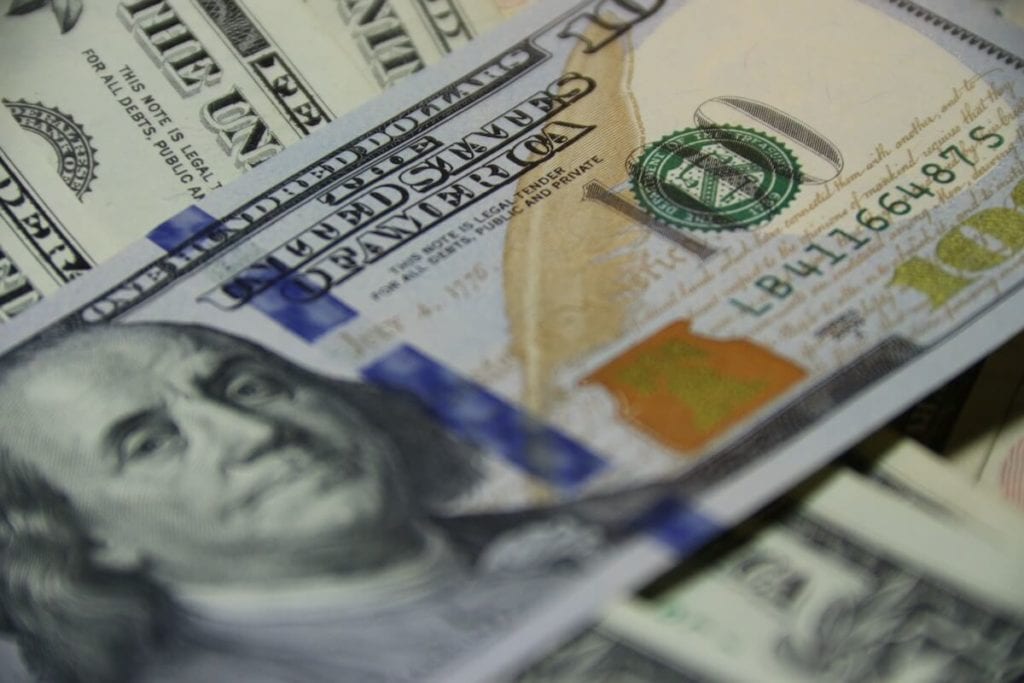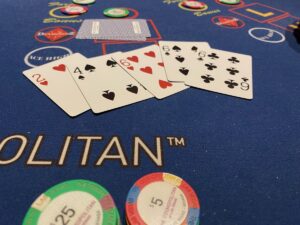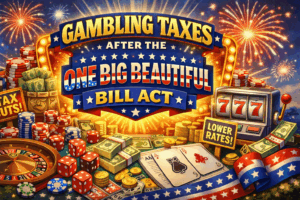
What is the Casino Telling the Government
Your favorite casino is more than a place for entertainment. It is regarded by the US government as a “financial institution,” and therefore it is required, under the “Bank Secrecy Act,” to report certain transactions to the US Department of the Treasury through Financial Crimes Enforcement Network (FinCEN). So, what is the casino telling the government?
Follow The Money
The reason for the reporting requirement ostensibly is to identify proceeds of criminal activity, combat money laundering and to combat terrorism funding. In a nutshell, FinCEN’s responsibility is to “follow the money.”
FinCEN is a bureau of the U.S. Department of the Treasury. The Director of FinCEN is appointed by the Secretary of the Treasury and reports to the Treasury Under Secretary for Terrorism and Financial Intelligence. FinCEN’s mission is to safeguard the financial system from illicit use and combat money laundering and promote national security through the collection, analysis, and dissemination of financial intelligence and strategic use of financial authorities.
Source: www.fincen.gov

Persons regularly conducting currency transactions just below the $10,000 USD limit are engaging in “structuring,” and it is a crime.
CTR and SAR – Casino Telling the Government
Two primary reporting methods of the casino telling the government are the filing of a CURRENCY TRANSACTION REPORT (CTR) and a SUSPICIOUS ACTIVITY REFERRAL (SAR).
CURRENCY TRANSACTION REPORT (CTR)
- Submitted by financial institutions for a transaction involving more than $10,000 in cash. (This includes “buy-ins” for table games.)
- The financial institution is not required to inform the person that a CTR is being processed.
- If a person asks, they will be advised that the CTR is required.
- A person may decline to proceed with a transaction when informed of the CTR requirement. If a person does decline, a SUSPICIOUS ACTIVITY REFERRAL (SAR) will be submitted to FinCEN.
SUSPICIOUS ACTIVITY REFERRAL (SAR)
- The SAR is filed if there is REASON TO BELIEVE any of the following: that funds were derived from illegal activity, there is an attempt to hide assets which were derived from illegal activity, the activity is designed to evade the Bank Secrecy Act, there is no business or legitimate purpose for the activity, or the activity involves the use of a casino to facilitate criminal activity.
- A suspicious activity is filed for persons regularly conducting currency transactions just below the $10,000 threshold for a CTR. This is known as “structuring,” and it is a crime.
- Additional signs of suspicious activity include: exchanging small bills for large, purchasing chips and then after minimal gambling redeeming chips for cash, using other patrons to cash out chips, exchanging several monetary instruments, such as traveler’s checks, for one bank check.
- Suspicious activity reporting requirements generally start at $5,000. However, if a casino suspects that false, or that fraudulent of altered identification documents have been provided, the casino is encouraged to report this, even if it is below the $5,000 threshold.
Some Additional Information
- The casino is provided with complete protection from civil liability for all reports of suspicious activity.
- If a financial institution (the casino), suspect that there is an ongoing crime in progress, an immediate telephone notification to FinCEN is required.
- If appropriate, both a CURRENCY TRANSACTION REPORT (CTR) and a SUSPICIOUS ACTIVITY REFERRAL (SAR) will be filed.

The Inveterate Gambler has had a keen interest in casino games and the casino industry for more decades that he likes to remember. Craps, Blackjack and some Pai Gow Poker are his games of choice. He also enjoys playing in the home poker game were wild cards and luck overcome skill. He has no interest in slots and if there were no table games he would never set foot inside a casino. He is an expert on the Atlantic City scene. Like Batman, Superman, The Green Hornet, and a host of his other comic book heroes, The Inveterate Gambler must keep his true identity secret.












